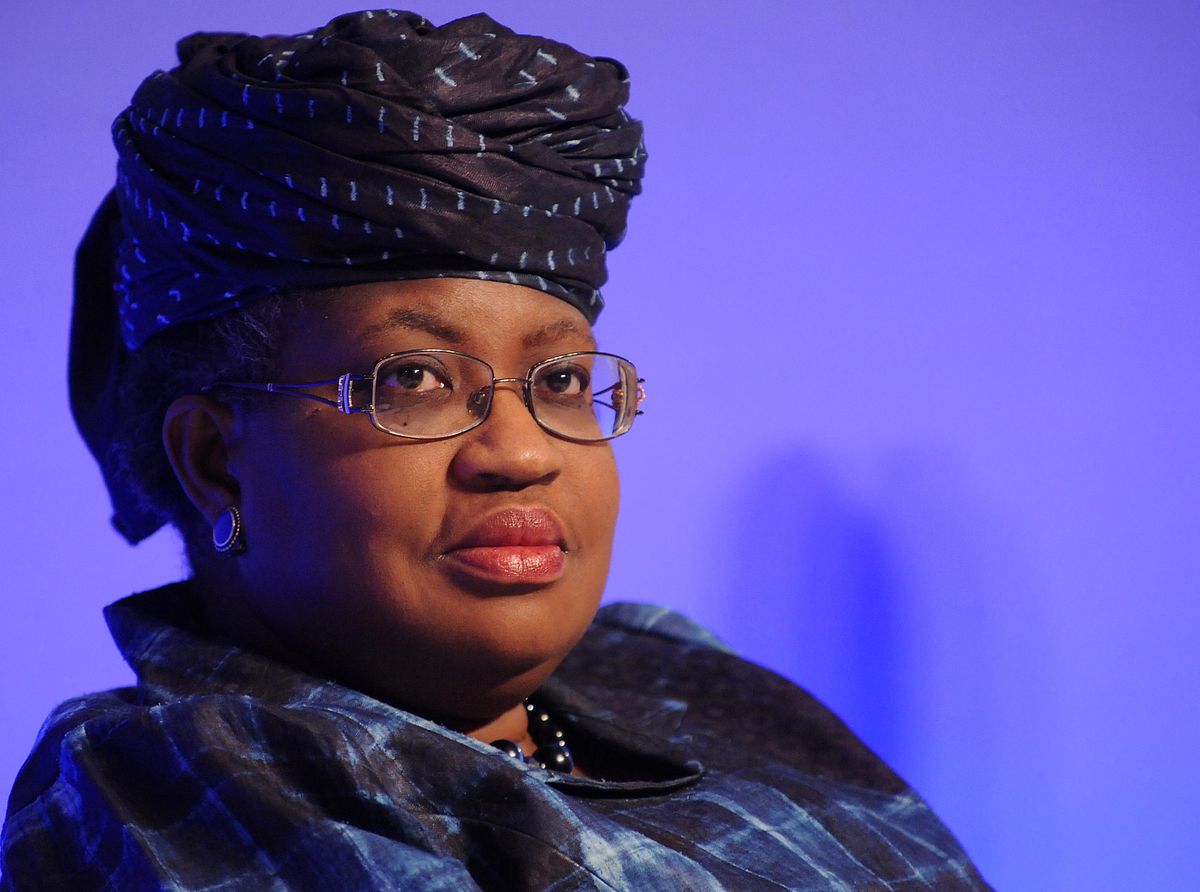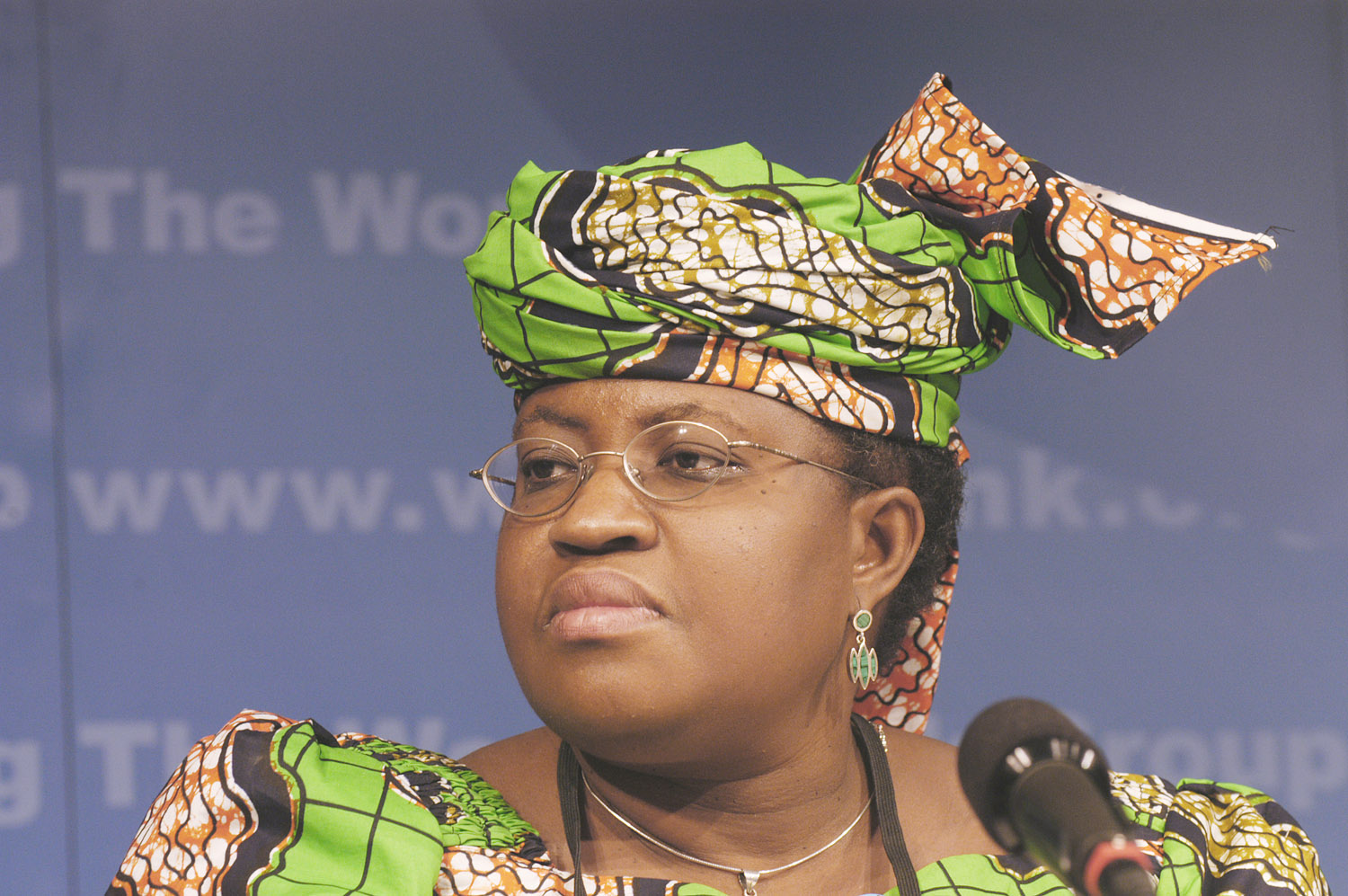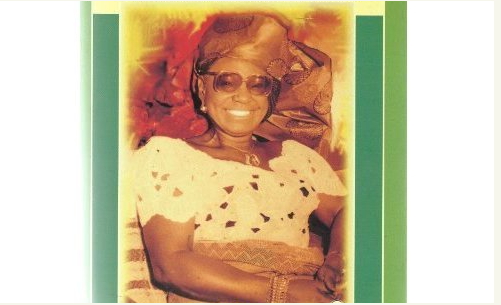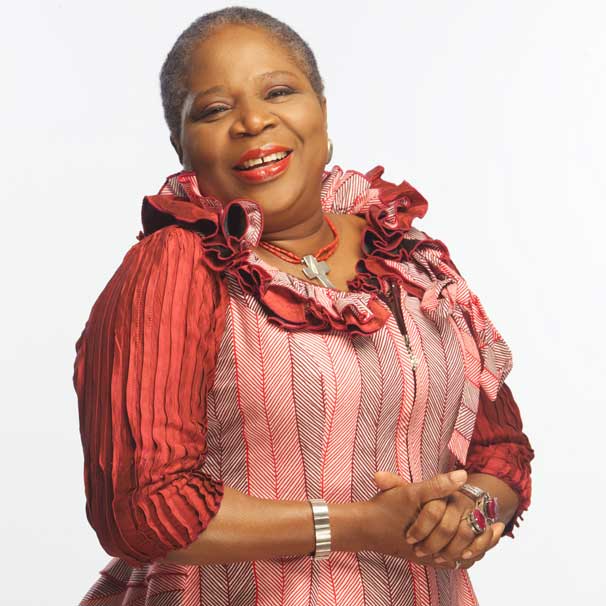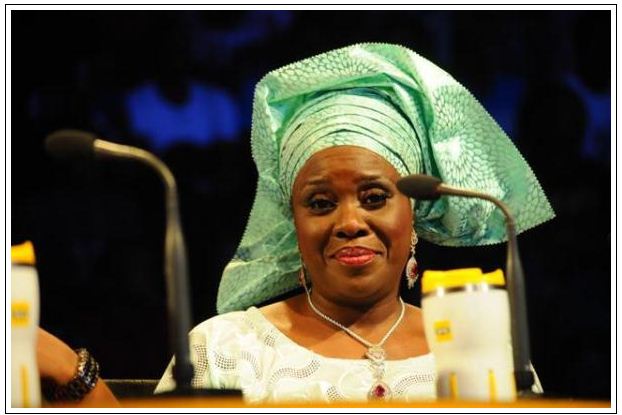In celebration of International Women’s Day today, we bring you the 12 Nigerian women that have rocked (and are still rocking) our world. They are the trend-setters of their time, who broke new grounds and continue to inspire a new generation of women.
We present them below in no particular order.
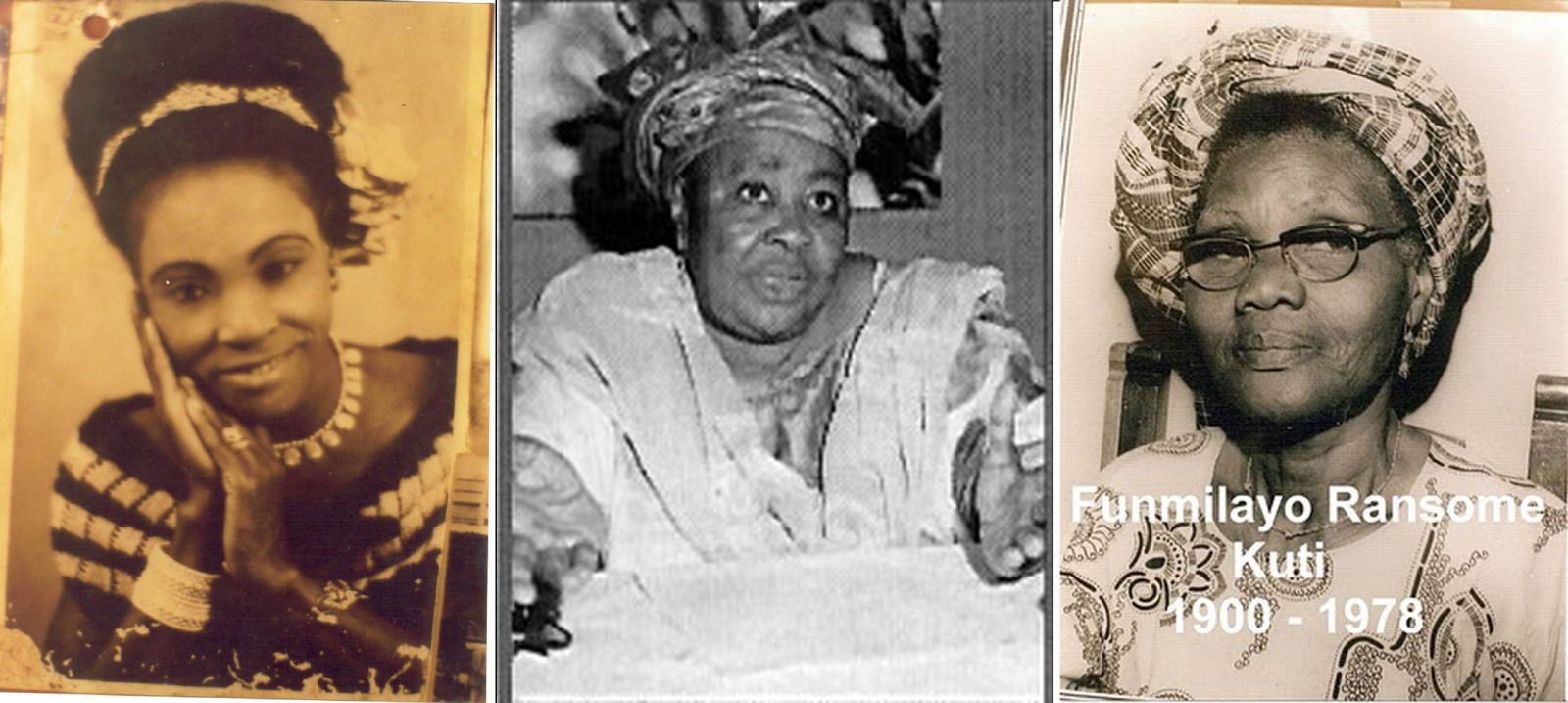
1. Margaret Ekpo
Margaret Ekpo (1914-2006) was a Nigerian women’s rights activist and social mobilizer who was a pioneering female politician in the country’s First Republic and a leading member of a class of traditional Nigerian women activists, many of whom rallied women beyond notions of ethnic solidarity. She played major roles as a grassroot and nationalist politician in the Eastern Nigerian city of Aba, in the era of an hierarchical and male-dominated movement towards independence, with her rise not the least helped by the socialization of women’s role into that of helpmates or appendages to the careers of males. (Source)
2. Ngozi Okonjo-Iweala
Ngozi Okonjo-Iweala (born June 13, 1954) is a globally renowned Nigerian economist best known for her two terms as Finance Minister of Nigeria (her current position) and for her work at the World Bank, including several years as one of its Managing Directors (October 2007–July 2011). She briefly held the position of Foreign Minister of Nigeria in 2006. In 2007, Okonjo-Iweala was considered as a possible replacement for former World Bank President Paul Wolfowitz.Subsequently, in 2012, she became one of three candidates in the race to replace World Bank President Robert Zoellick at the end of his term of office in June 2012.On April 16, 2012 it was announced that she had been unsuccessful in her bid for the World Bank presidency, having lost to the US nominee, Jim Yong Kim. This outcome had been widely anticipated. However, this was the first contested election for World Bank president after the demise in 2010 of the Gentlemen’s Agreement that the US would appoint the World Bank president and Europe would appoint the Managing Director of the International Monetary Fund. (Source)
3. Chimamanda Adichie
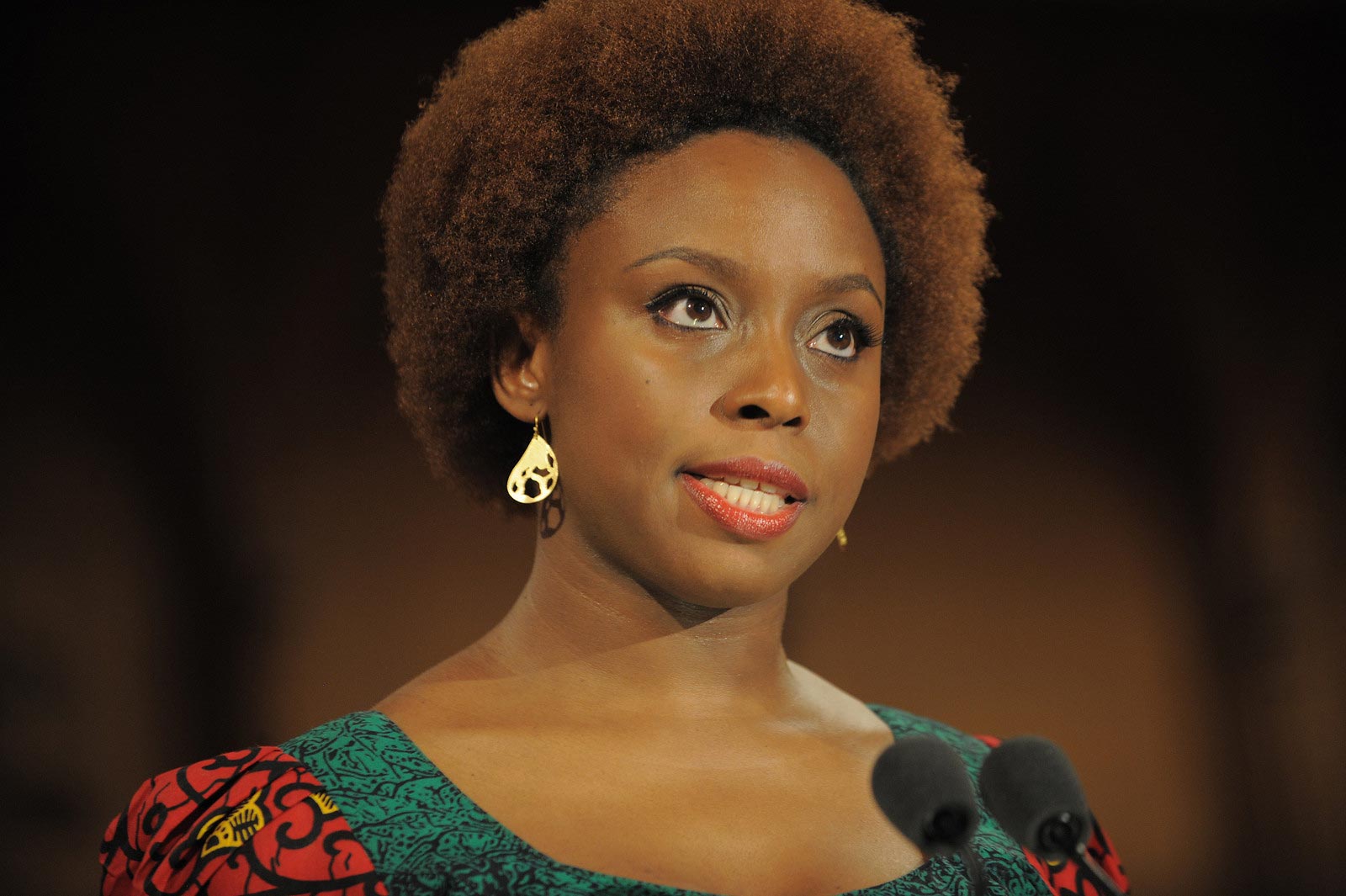
Chimamanda Ngozi Adichie (born 15 September 1977) is a Nigerian writer. She has been called “the most prominent” of a “procession of critically acclaimed young anglophone authors [that] is succeeding in attracting a new generation of readers to African literature”. Her first novel, Purple Hibiscus (2003), received wide critical acclaim; it was shortlisted for the Orange Prize for Fiction (2004) and was awarded the Commonwealth Writers’ Prize for Best First Book (2005). Her second novel, Half of a Yellow Sun, named after the flag of the short-lived nation of Biafra, is set before and during the Biafran War. It was awarded the 2007 Orange Prize for Fiction. Half of a Yellow Sun has been adapted into a film staring Academy Award nominee Chiwetel Ejiofor and BAFTA award winner Thandie Newton and is set for release in 2014. Her third book, The Thing Around Your Neck (2009), is a collection of short stories. In 2010 she was listed among the authors of The New Yorker′s “20 Under 40” Fiction Issue.Adichie’s story, “Ceiling”, was included in the 2011 edition of The Best American Short Stories. In 2013 she published her third novel, Americanah which was selected by the New York Times as one of The 10 Best Books of 2013.
Adichie spoke on “The Danger of a Single Story” for TED in 2009. On 15 March 2012, she delivered the “Connecting Cultures” Commonwealth Lecture 2012 at the Guildhall, London. Adichie also spoke on being a feminist for TEDxHuston in December 2012, with her speech entitled, “We should all be feminists”.This speech was sampled for the 2013 song “***Flawless” by American performer Beyoncé, where it attracted further attention. (Source)
3. Funmilayo Ransome-Kuti
Funmilayo Ransome Kuti (25 October 1900 – 13 April 1978 ), born Francis Abigail Olufunmilayo Thomas to Daniel Olumeyuwa Thomas and Lucretia Phyllis Omoyeni Adeosolu, was a teacher, political campaigner, women’s rights activist and traditional aristocrat. She served with distinction as one of the most prominent leaders of her generation. Ransome-Kuti’s political activism led to her being described as the doyen of female rights in Nigeria, as well as to her being regarded as “The Mother of Africa.” Early on, she was a very powerful force advocating for the Nigerian woman’s right to vote. She was described in 1947, by the West African Pilot as the “Lioness of Lisabi” for her leadership of the women of the Egba clan that she belonged to on a campaign against their arbitrary taxation. That struggle led to the abdication of the Egba high king Oba Ademola II in 1949.
Kuti was the mother of the activists Fela Anikulapo Kuti, a musician, Beko Ransome-Kuti, a doctor, and Professor Olikoye Ransome-Kuti, a doctor and a former health minister of Nigeria. She was also grandmother to musicians Seun Kuti and Femi Kuti. (Source)
4. Liz Benson
Elizabeth Benson (b. 1966), popularly known as Liz Benson, began her journey to stardom when she appeared on the set of the popular television soap opera, Fortunes in 1993. Liz Benson played the part of Mrs. Agnes Johnson in the soap, which ran for about two years on the Nigerian Television Authority network.In 1994, her role in Glamour Girls, a very successful home video film that focused on the theme of prostitution, literally changed her fortune after Fortunes. The movie shot her into prominence and gradually she warmed her way into the minds of millions of Nigerian movie fans. Surprisingly, just when her rating as a leading actress had begun to rise even higher than expected, Benson suddenly quit acting in 1996. She became a born-again Christian and started preaching the gospel. She started acting when she was five years old. She is loved by most movie watchers in Nigeria and is seen as one of the first ladies of Nollywood
Some of her more popular roles include her role as Titubi in Femi Osofisan’s Morountodun. She has acted in a number of Nollywood video-films such as Evil Men 1 and 2, Shame, Conspiracy, Izaga, Burden, Stolen Child, Faces, Dead End, Tycoon, Glamour Girls, Body of Vengeance and a horde of other movies. Liz Benson currently is an evangelist and lives in Delta State with her husband. Together they run a ministry, Freedom Family Assembly. (Source)
5. Mo Abudu

Mosunmola Abudu (b. 1964) , usually known as Mo Abudu, is a talk show host, TV producer, media personality, human resources management consultant and entrepreneur. Abudu is the Executive Producer & host of a TV talk show, Moments with Mo, which is the first syndicated daily talk show on African regional television. Mo Abudu launched Ebony Life Television, “Africa’s first Global Black Multi-Broadcast Entertainment Network” on 1st July, 2013. As obtained on the television website, Ebony Life TV is “a multi-platform broadcaster set to reach Africa’s most important target demographic, the custodians of the present and the future. We are set to produce and broadcast over 700 hours of non-stop, original programming with world-class production values. We are set to do this through a variety of engaging platforms that include TV, Mobile, Online, Apps and Live. We are positioned to be the home of the best of African content available.” A subsidiary of Media and Entertainment City Africa (MEC Africa), Ebony Life TV is located in Tinapa Resort, Calabar, Cross River State Nigeria. (Source)
6. Hajia Gambo Sawaba
Hajia Gambo Sawaba (1933-2001) was a Nigerian politician and activist who was a supporter of the Northern Elements Progressive Union during the Nigerian First Republic. She was one of the early members of NEPU in Zaria, then the party identified with the working class and poor and was manned by their main support base. Her political activities during the period earned her persecutions from both the colonial authorities and the native administrations which resulted in her being incarcerated for more than a dozen times. Her biography included notes on several instances of beatings and assaults attributed to the NPC’s Yan Mahaukita. She is also known for some of her charitable causes and also for her views on womens liberation in the arena of politics. (Source)
7. Zainab Alkali
Zaynab Alkali (born 1950 Tura-Wazila, Borno State) is a Nigerian novelist, poet, short story writer. The first woman novelist from Northern Nigeria, she graduated from Bayero University Kano with a BA in 1973. Her works include The Stillborn (1984), The Virtuous Woman (1987), Cobwebs & Other Stories (1997), and The Descendants (2005). (Source)
8. Flora Nwapa
Florence Nwanzuruahu Nkiru Nwapa (13 January 1931 – 16 October 1993) was a Nigerian author best known as Flora Nwapa. Her novel Efuru (1966) is among the first English-language novels by a woman from Africa. Nwapa, born in Oguta, was the forerunner to a generation of African women writers. While never considering herself a feminist, she is best known for recreating life and traditions from a woman’s viewpoint. In 1966 her book Efuru became Africa’s first internationally published female novel in the English language (Heinemann Educational Books). She has been called the mother of modern African literature. Later she went on to become the first African woman publisher of novels when she founded Tata Press. She also is known for her governmental work in reconstruction after the Biafran War. In particular she worked with orphans and refugees that where displaced during the war. Further she worked as a publisher of African literature and promoted women in African society. (Source)
9. Christy Essien-Igbokwe
Christy Uduak Essien-Igbokwe MFR (11 November 1960 – 30 June 2011) was a Nigerian musician and actress. She was known as Nigeria’s Lady of Songs. She put Nigeria’s name on the world music map with her evergreen “Seun Rere” track. She was the first female president of the Performing Musicians Association of Nigeria (PMAN). She was also the chairman and managing director of Soul Train entertainment limited. Although she was not from the Yoruba tribe, she sang a lot of her songs in the western Nigerian language and drew heavily on their culture and tradition . Essien’s fluency in Yoruba, English, Igbo and her native Ibibio earned her an appeal which cut across tribal lines. Before she passed away, she had recorded 11 studio album.
Essien-Igbokwe won several awards throughout her career including Nigerian lady of songs award which she received in 1984, Africa music mother award 1984, International special achievement award in Mexico in 1983, world song festival award, Los Angeles, queen of music international award association of theatre arts practitioners in Lagos in 1996 and outstanding achievement in female uplifting. She also contributed enormously to nation building, peace and tolerance – which, alongside moral uprightness, remain constant themes of her songs. (Source)
10. Onyeka Onwenu
Onyeka Onwenu (born 01 January 1952) is a foremost Nigerian performer with a string of successful, award-winning music albums and movies. In 2006, she won the African Movie Academy Award for Best Actress in a supporting role. Dubbed the “Elegant Stallion” by the Nigerian Press, this multi-talented Artiste is a Singer,Songwriter, Actress, Social Critic and Politician. She is a former chairperson of the Imo State Council for Arts and Culture. She is currently the Executive Director/Chief Executive Officer of the National Centre for Women Development.
Onwenu possess a B.A. in International Relations and Communication of the Wellesley College of Massachusetts, USA, and a Masters Degree in Media Studies from The New School for Social Research in New York. She worked for many years at the United Nations in New York before returning to Nigeria in 1980, where she completed the mandatory one-year National Service, at the Nigerian Television Authority (NTA), in Lagos. In under one year at the NTA, Onwenu made an impact as an articulate, incisive and fearless Television Reporter. In 1984, she wrote and presented the internationally acclaimed BBC/NTA documentary called “Nigeria, A Squandering of Riches”. It became the definitive film about corruption in Nigeria as well as the intractable Niger Delta agitation for resource control and campaign against environmental degradation in the oil rich region of Nigeria. (Source)
11. Joke Sylva
Joke Silva (born 29 September 1961) is a Nigerian actress and director. She has received several awards and nominations for her work as an actress including the awards for Best Actress in a Leading Role at the African Movie Academy Awards in 2006, and Best Actress in a Supporting Role at the African Movie Academy Awards in 2008. Silva was born in Lagos, Nigeria, into a family of four children. She attended Holy Child College in Lagos, after which she studied English at the University of Lagos. She then relocated to England and studied drama at the Webber Douglas Academy of Dramatic Art in London. Silva has starred in several films and television series, some which include Secret Laughter of Women, 30 Days, Letters to a Stranger, Widow’s Cot and the African Movie Academy Award-nominated films White Waters and The Amazing Grace. (Source)
12. Ify Aniebo
Ify Aniebo is a scientist and inventor. Ify’s mission is to make scientific issues and research accessible to the masses, and with an online health resource averaging thirty thousand views per month, she is well on her way towards achieving her goal.
Ify’s main area of interest and research is malaria. Having grown up in Nigeria, a country blighted by malarial illness, Ify became intrigued at how other parts of the world had been able to eliminate it and decided to pursue a career in science. Ify’s first degree was in Genetics from Queen Mary University of London; she then completed a Masters in Applied Biomolecular Technology at the University of Nottingham and later worked at the top research institutions Medimmune, Illumina and the Sanger Institute, all in Cambridge.
Her initial curiosity in explaining malarial illnesses has since spread to finding explanations for other diseases and health issues, which she now shares as simply as possible through her online resource, the African Health Magazine. Ify started the website to educate young Africans about health issues and to provide a trusted daily resource for healthier living. Ify’s work has been recognised in a number of awards held both in the UK and in her native country. In Nigeria, she was awarded the prestigious Young Person of the Year Award 2010 and The Best Use of Science Award 2010, and was voted one of the ‘top ten women to look out for’. Ify also won the Best Photography award given by Oxford’s department of public health, and has also been granted numerous scholarships, the most recent of which have come from the Wellcome trust and Exxon‑mobil. (Source)

